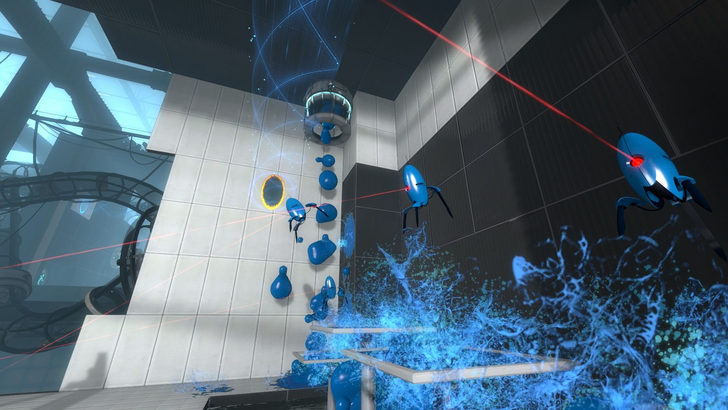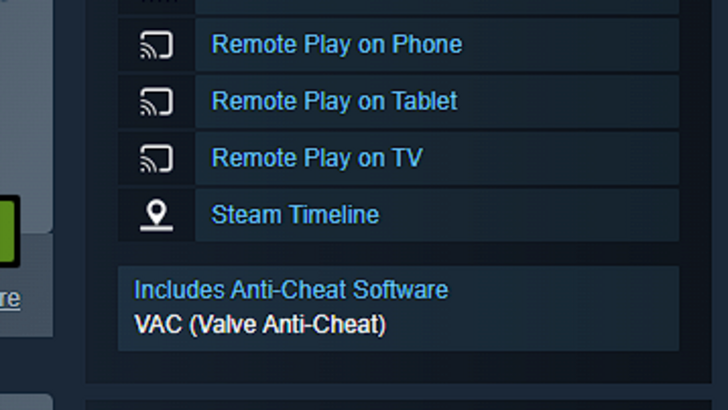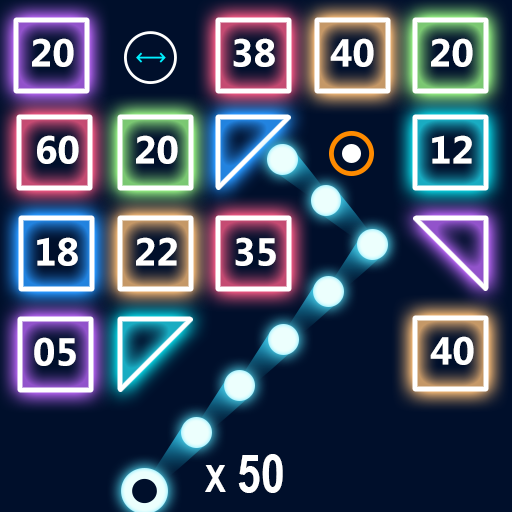Steam's New Anti-Cheat Disclosure Feature: A Step Towards Transparency?
 Steam has implemented a new requirement for developers: disclosing whether their games utilize kernel-mode anti-cheat. This move aims to enhance transparency and address player concerns regarding the potentially intrusive nature of such systems.
Steam has implemented a new requirement for developers: disclosing whether their games utilize kernel-mode anti-cheat. This move aims to enhance transparency and address player concerns regarding the potentially intrusive nature of such systems.
Valve's Enhanced Anti-Cheat Disclosure
 Via a recent Steamworks API update, developers can now specify their game's anti-cheat implementation on their store pages. While disclosure for non-kernel-based systems remains optional, the use of kernel-mode anti-cheat is now mandatory. This addresses growing player anxieties about the potential impact on system performance, security, and privacy.
Via a recent Steamworks API update, developers can now specify their game's anti-cheat implementation on their store pages. While disclosure for non-kernel-based systems remains optional, the use of kernel-mode anti-cheat is now mandatory. This addresses growing player anxieties about the potential impact on system performance, security, and privacy.
Kernel-Mode Anti-Cheat: A Point of Contention
 Kernel-mode anti-cheat operates at a low system level, directly examining processes. This contrasts with traditional methods that analyze in-game activity. The direct access to system data has fueled debate over potential negative consequences.
Kernel-mode anti-cheat operates at a low system level, directly examining processes. This contrasts with traditional methods that analyze in-game activity. The direct access to system data has fueled debate over potential negative consequences.
Responding to Developer and Player Feedback
 Valve's decision reflects feedback from both developers seeking clearer communication channels and players demanding greater transparency regarding anti-cheat software and installations. The update provides a streamlined method for developers to inform players and empowers players with more informed choices.
Valve's decision reflects feedback from both developers seeking clearer communication channels and players demanding greater transparency regarding anti-cheat software and installations. The update provides a streamlined method for developers to inform players and empowers players with more informed choices.
Mixed Community Reception
 Launched October 31st, 2024, at 3:09 a.m. CST, the feature is already live, as demonstrated by Counter-Strike 2's updated store page. While many praise Valve's pro-consumer stance, some criticism focuses on minor presentation issues like wording and potential translation challenges. Questions remain regarding the classification of certain anti-cheat solutions and the handling of various implementations. The inherent concerns surrounding kernel-mode anti-cheat's invasiveness also persist.
Launched October 31st, 2024, at 3:09 a.m. CST, the feature is already live, as demonstrated by Counter-Strike 2's updated store page. While many praise Valve's pro-consumer stance, some criticism focuses on minor presentation issues like wording and potential translation challenges. Questions remain regarding the classification of certain anti-cheat solutions and the handling of various implementations. The inherent concerns surrounding kernel-mode anti-cheat's invasiveness also persist.
 Despite this initial mixed response, Valve's commitment to consumer protection is evident, as shown by their transparency regarding recent California consumer protection legislation. The long-term impact on community perception of kernel-mode anti-cheat remains to be seen.
Despite this initial mixed response, Valve's commitment to consumer protection is evident, as shown by their transparency regarding recent California consumer protection legislation. The long-term impact on community perception of kernel-mode anti-cheat remains to be seen.
 Home
Home  Navigation
Navigation






 Latest Articles
Latest Articles










 Latest Games
Latest Games












